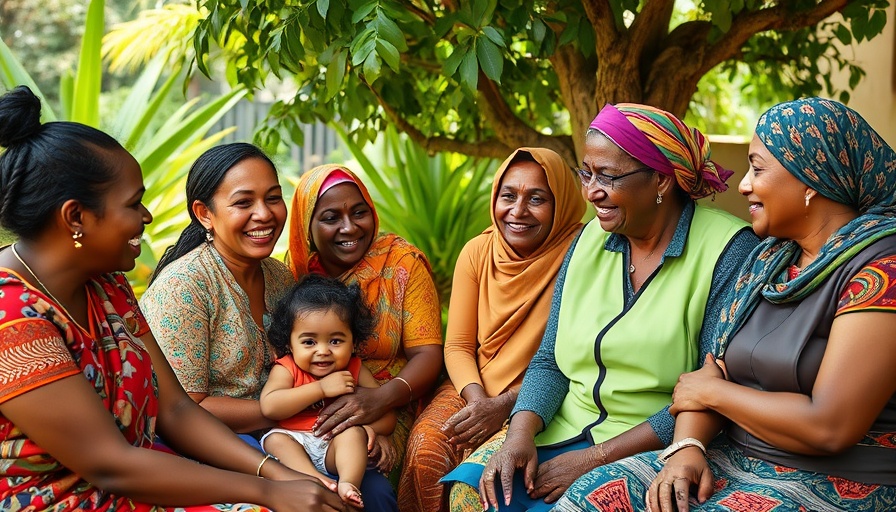
The Hidden Value of Rockall: Trillions Beneath the Waves
Most people may think of rocks as simple formations found in nature, but the tale of Rockall, a tiny ocean rock off the coast of Scotland, reveals an extraordinary story of potential wealth beneath its surface. Just a mere dot in the vast Atlantic, this unassuming landform holds enormous implications for global economics and international relations. It serves as a reminder that even the smallest piece of land can possess immense value, driven primarily by the resources that exist underneath the ocean floor.
In 'This tiny ocean rock is worth TRILLIONS?!', the discussion highlights the fascinating economic and geopolitical stories surrounding Rockall, prompting us to analyze its larger meaning in global resource discussions.
The Struggles and Claims Over Rockall
Historically, Rockall has been at the center of disputes concerning territorial claims. It has often been seen as a strategic asset for countries due to its potential underwater resources, including oil and gas reserves. As debates arise over jurisdiction, it triggers consequences for nations eyeing their slice of the global energy pie. Nations such as the United Kingdom and Ireland have had their confrontations over maritime boundaries, demonstrating how seemingly trivial territories can have far-reaching consequences in geopolitics.
Global Implications of Resource Control
The quest to control resources tied to Rockall speaks volumes about the lengths governments will go to secure energy supplies. During a time when nations grapple with energy insecurity and climate change, the idea of harnessing resources from beneath these waters becomes even more pressing. In Africa, countries are also navigating their resource wealth and determining how best to capitalize on it, drawing parallels with the Rockall situation. As nations vie for energy independence, understanding the strategic importance of their resources is vital.
A Lesson in the Importance of History
What Rockall teaches us goes beyond the immediate economic implications. It serves as a microcosm of larger historical patterns in which small pieces of land incite conflict and negotiations among nations. This section of history reveals how borders can evolve based on economic necessity, resource discovery, and wartime histories. Countries in Africa, enriched with diverse resources, have their own narratives rife with similar conflicts. The historical context enhances our perspective on current events, traits of war, and economic policies in the region.
The Future: Opportunities and Responsibilities
The controversies surrounding Rockall also spotlight the future of international resource governance. As discussions on sustainability and responsible consumption gain traction globally, it has become essential for nations—both big and small—to engage in collaborative dialogues about their resources. African nations, already rich in resources, must lean into these debates about sustainability to avoid reconceptualizing the colonial history of extraction.
Actionable Insights for Understanding Geopolitics
As Rockall charts its course in economic history, individuals seeking to better understand global dynamics can learn vital lessons. Engaging in discussions surrounding resource allocation, environmental sustainability, and geopolitical strategies can arm everyday citizens with knowledge. Africa’s rich history and current geopolitical climate demand that its people be active participants in conversations related to their resources.
By embracing these discussions, Africans can contribute to a narrative that promotes sustainability, fairness, and equitable resource distribution on both the continent and the globe.
 Add Row
Add Row  Add
Add 


Write A Comment